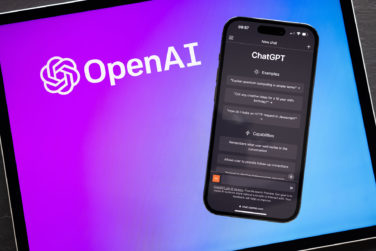TransCelerate BioPharma Inc. is expanding its mission to accelerate and enhance the R&D process for innovative new therapies with the launch of BioCelerate, a subsidiary that will focus on improving efficiencies in preclinical research. TransCelerate is a non-profit organization made up of 19 pharmaceutical companies that have come together to collaborate and find ways to improve drug development. Now, BioCelerate will aim to do the same in the preclinical area.
“As TransCelerate gained momentum with more membership—but more importantly more projects that are delivering pragmatic, tangible solutions to the industry, our members, and the general ecosystem—we started to discuss if we can do more and what that would be,” explains Dalvir Gill, PhD, CEO of TransCelerate. “While a lot of discussions occurred, it all narrowed down to preclinical research as an area similarly amenable to collaboration, in which one company trying to do something on its own is a lot less effective than three or five or ten or however many it might be.”
For now, that number will be six. TransCelerate members Boehringer Ingelheim, Bristol-Myers Squibb, Eli Lilly and Company, GlaxoSmithKline, Novo Nordisk and Shionogi & Co., Ltd. have agreed to launch BioCelerate’s first initiative: Toxicology Data Sharing. A company must be a member of TransCelerate in order to be involved with BioCelerate. Mike Graziano, PhD, DABT, Vice President, Drug Safety Evaluation at Bristol-Myers Squibb will serve as the leader for the toxicology data sharing initiative.
“One of the values of this project, from a toxicologist’s point of view, is gleaning more information when we’re often restricted on the data that we have within our own companies,” Graziano says. “And I can give you examples: Sometimes, we uncover these very rare findings in our animal studies and we’re not quite sure whether the findings are real or background. So having more information from other projects and other compounds would give toxicologists a better assessment of the real concern.”
Is My Compound Worth the Risk?
The ultimate goal of the initiative, as with many of the projects at TransCelerate, will be to allow companies to make better decisions. In the specific case of toxicology, Graziano explains that companies often struggle with gaining a better understanding of “on” versus “off” target toxicity. But forming a data-sharing initiative around this area might provide companies with the information they need to make better decisions about their compounds.
“Drug development depends on data,” Graziano adds. “The more data you have, the better decisions you can make, and we felt it would be in the best interest of companies to get together and actually share some of their knowledge on compounds so that we can all make better decisions on whether or not we want to proceed with our compounds in development. In some cases this could lead to faster development with more confidence that we can overcome nonclinical safety issues. In other situations it might be more obvious that the effort to de-risk a finding would be very difficult and we might want to get out earlier. All of this is about maximizing the benefit and safety of patients. ”
According to Graziano, the BioCelerate companies still need to meet and work out a data sharing agreement to determine what kind of information from each company will be fair game. The hope is to have data on a variety of compounds including those in late-stage development, as well as compounds that have already been approved for marketing. The plan is to have the initiative up and running by the end of the year, but any results probably won’t be seen for a couple of years. For now, any information gleaned will remain with those six companies, but that isn’t always the case with TransCelerate.
“For some projects, you can’t share that information—for various reasons—until you get to a point of some maturity,” Gill explains. “But the vast majority of what we do is in the public domain, including our risk-based monitoring study data, GCP training, our first release of the shared investigative platform and our first template for the common protocol template.”
TransCelerate’s Past Successes
Risk-based monitoring is just one of TransCelerate’s success stories in the three and a half years it has been in existence. While it wasn’t a new clinical idea by any means, it turns out many companies had a very different approach to it.
“All these different methodologies trying to achieve the same thing would overwhelm the sites, regulators and CROs,” explains Gill.
But through the collaborative study, TransCelerate was able to uncover a more consistent method and companies ate up the information. DIA journals publish some of the results from TransCelerate projects (including risk-based monitoring), and according to Gill, three of the TransCelerate papers published in DIA journals make up more than 50% of the downloads of DIA’s top 10 papers published.
“There is real interest to figure out how to have a consistent method or methodology for risk-based monitoring, for centralized monitoring, for technology considerations, for dashboards, for analytics,” Gill adds. “What we have come up with is something that is consistent, and that is just as valuable as the best technology.”
The hope is that BioCelerate will be able offer similar benefits in the preclinical area. While the Toxicology Data Sharing initiative is the first step, Gill says the plan is to add more projects to the new organization’s portfolio by the beginning of next year. And with more projects, Gill expects more TransCelerate members will join BioCelerate as projects are chosen that are of more interest to them.
Projects will be chosen in a way similar to how it is done at TransCelerate, which starts with an ideation committee made up of people from the member companies. Then it goes through a number of steps to become more fully formed before ending up in front of the TransCelerate Board of Directors or BioCelerate’s Governing Council for approval.
Pharma’s Collaborative Effort
“The genius of TransCelerate and BioCelerate?” Gill explains, “We tell companies, ‘We want you to participate and we’re not going to hire a bunch of consultants to help you with ideas. You’ve got to give me your best people, let’s put them in a room, take the company hats off and see what we can do with that particular issue.’”
Current TransCelerate members include: AbbVie, AstraZeneca, Boehringer Ingelheim, Bristol-Myers Squibb, Eli Lilly and Company, GlaxoSmithKline, Johnson & Johnson, Pfizer, the Roche Group, Sanofi, Allergan, Inc., Amgen, Astellas Pharma Inc., EMD Serono, Inc. (a subsidiary of Merck KGaA, Darmstadt, Germany), Medgenics, Inc., Merck & Co., Inc., Novo Nordisk, Shionogi & Co., Ltd. and UCB. Others looking to join need not worry about having to give up any proprietary information in order to take part in the collaborative initiatives.
“We do not operate in the area that infringes on any kind of competitive landscape,” Gill says. “We want these companies to remain competitive. We want them to be fiercely competitive because that drives innovation. But there are so many things we do every day in the development of drugs and the R&D process that’s not competitive in nature. We’re all dealing with similar problems and together we have a much greater chance of resolving those problems without infringing our competitive spirits.”






